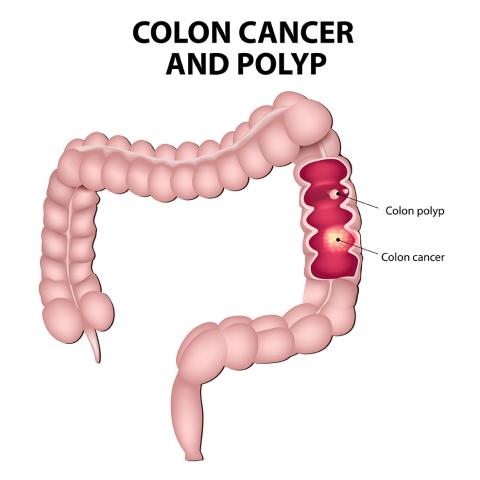
Colorectal Cancer

Colorectal cancer, cancer of the colon and rectum, is the second leading cause of cancer mortality in America. It’s the third most common cancer type found in both men and women in the United States, but thanks to awareness around colonoscopy screenings, the death rate from this cancer have dropped in recent years. Typically it affects people over 50 years old, as well as those with hereditary colorectal history. Colorectal cancer is often beatable when detected and treated in its early stages and can even be prevented altogether when polyps are removed before they develop into cancer.
Roughly 90 percent of colorectal cancer cases can be prevented with colonoscopy screening – often saving lives.
Most cases of colorectal cancer occur in people over 45. Although colorectal cancer is responsible for thousands of deaths every year, it is highly treatable if caught early.
Signs and Symptoms
Unfortunately, most people with colorectal cancer do not have any signs or symptoms in the early stage of the disease. Therefore, screening tests, such as a colonoscopy, are so important.
- Rectal bleeding or blood in your stool
- A change in your bowel habits, such as diarrhea, constipation, or narrow stool that lasts more than a few days
- Unexplained abdominal pain or cramping
- A persistent urge to have a bowel movement that doesn’t go away after you have one
- Unexplained weakness and fatigue
- Unintended weight loss
- A diagnosis of anemia
- Women who have bloating that doesn’t go away or happens with unexplained weight loss
Causes
More than half of all colorectal cancers occur without any known cause. Studies also suggest that genetics may play a role. Some people with colorectal cancer carry specific genetic mutations or have had a relative with the condition. Those with a family history of specific genetic syndromes, such as familial adenomatous polyposis, Lynch syndrome, juvenile polyposis, and Peutz-Jeghers syndrome, are also at an increased risk of developing colorectal cancer. Smoking and eating a high-fat diet also raise the risk of developing cancer.
Risks Factors
About 75% of colorectal cancers occur in individuals who have an “average risk” of developing the disease, meaning that they aren’t suffering from any gastrointestinal conditions or have a family history of colorectal cancer, but may have certain lifestyle risks factors. Factors that have been identified to increase your risk include:
- Age: Most people diagnosed with colorectal cancer are over 50. However, in recent years there has been an increase in the number of people under the age of 50 being diagnosed.
- A personal history of colorectal polyps or colorectal cancer.
- Inflammatory bowel disease (IBD): Chronic inflammatory disease of the colon, such as ulcerative colitis or Crohn’s disease, can increase the risk of colorectal cancer.
- Racial/Ethnic background: African Americans have a higher incidence of colorectal cancer as compared to other groups in the United States.
- Family history of colorectal cancer: First-degree relatives of individuals with colorectal cancer are at increased risk of developing cancer themselves. Know your family history of colorectal cancer.
- Eating a high-fat diet
- Smoking
- Being overweight
- Heavy use of alcohol
- Diabetes
